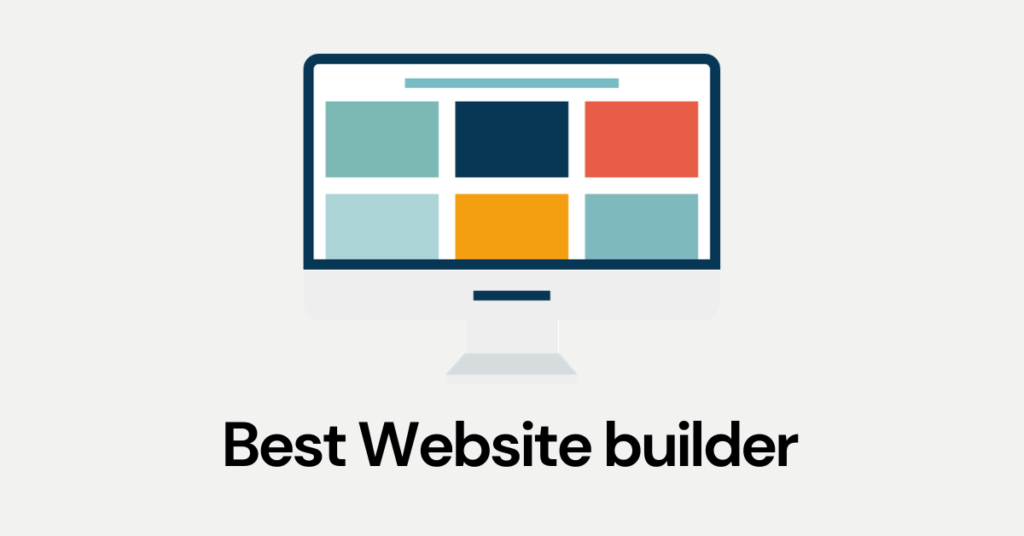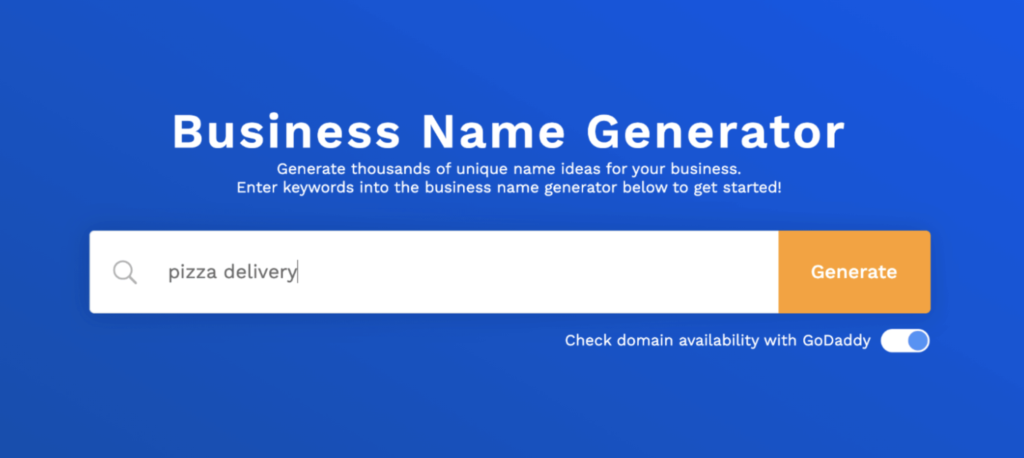Website builders have a well-established presence in the online world, but their use remains a challenge.
Creating a professional and high-performing website requires meticulous preparation. With the help of the best website builder, anyone can now design an outstanding website with just a click.
In the market, many popular solutions promise to assist you in achieving your website creation goals. However, it is essential to note that leading professional website builders come with various advantages and disadvantages. Therefore, choosing the most suitable solution is of paramount importance.
The choice will largely depend on your specific expectations for your website. Depending on your needs, one option may be more advantageous for you. But how can you determine the best option for yourself?
With years of experience in website design, I will guide you through the different categories of website builders and help you make the choice that suits you best. Then, in-depth reviews of the top five options will give you the necessary information to make an informed decision.
What Is the Best Website Builder?
Check out our comprehensive list of the top 6 website builders and compare them to one another:
I used my own independent and unique research process to create my list of website builders. This means that all my assessments are backed by hours of testing and product analysis so that you can be assured of the accuracy and reliability of my recommendations.
My primary goal is always to be as honest and transparent as possible because I'm here to help you find the website builder to help you achieve your goals.
That's why I rigorously tested and selected Squarespace, Weebly, and Jimdo from over 30 of the best website builders available on the market, comparing them against my stringent criteria. This way, I could narrow my list to the top 10, each meeting the needs of my readers.
Thanks to this, I'm confident you can find the ideal website builder for your website creation goals.
What Is the Best Website Builder?
1. Jimdo
The Best Option for Website Creation.
Jimdo is an all-in-one solution that simplifies website and online store creation for small businesses and entrepreneurs. With a comprehensive set of digital tools, Jimdo enables you to build a customized website in compliance with GDPR, along with a 24/7 open online store. Moreover, it offers the option to start for free, making it an accessible choice for those looking to get started online.
Key Features of Jimdo:
Jimdo stands out with its essential features:
- Ease of Use: Jimdo provides a seamless website creation experience. Whether you're a novice or an expert, customizing your site is at your fingertips.
- Flexible Customization: The platform allows you to personalize your site at any time. You can easily add images and text, and a library of royalty-free images is included.
- Optimized Designs: Jimdo offers flexible designs that adapt perfectly to mobile screens, ensuring an exceptional user experience.
- Commission-Free Online Store: Online sellers will appreciate the absence of sales commissions.
- Easy Legal Pages: The legal text generator makes managing legal aspects straightforward.
- Logo Creator: Jimdo also offers a Logo Creator to design impactful logos without design skills.
Who Is Jimdo For:
Jimdo is suitable for small businesses, entrepreneurs, and anyone looking to create a personalized website or online store. It is also a fit for those aiming to streamline the creation of GDPR-compliant legal pages and design professional logos.
Jimdo Pricing:
Choose a plan that suits your needs:
- PLAY (Try for Free): Includes all basic features, a .jimdosite.com subdomain, and it's entirely free.
- START (For Your Personal Site): For $9 per month, enjoy all PLAY features, plus an included domain name and no advertising.
- GROW (For Your Business): At $15 per month, get the features of the START plan, with added search engine optimization (SEO), visitor statistics, and personalized support response within 4 hours.
- UNLIMITED (Keys to Your Success): For $39 per month, access all the previous features, along with unlimited storage, professional design analysis, and a support response within one hour.
Choose a plan that fits your needs, and create a website for your business today with Jimdo.
2. Squarespace
One of the Best Website Builders in Its Category.
Squarespace is a leading website creation platform in the realm of web design. It enables users to craft high-quality websites, portfolios, and online stores, helping them stand out online.
Whether you have ideas for a personal website, an artistic portfolio, or even to establish an online store, Squarespace provides the necessary tools to bring each of your aspirations to life.
Key Features of Squarespace:
- Professional Design: High-quality website templates that you can customize.
- Portfolios and Galleries: Options to professionally showcase your work.
- Powerful Blogging: Tools for effective blog creation and management.
- SEO Optimization: Built-in features to enhance your site's visibility on search engines.
- Advanced Analytics: Tools to understand your web traffic and visitor interaction with your content.
- App Integration: The ability to add third-party applications to your site.
- Mobile Editing: Managing your site from a mobile application.
- Simplicity of Creation: A streamlined process for creating and customizing your website.
Benefits of Squarespace:
- User-friendly for website creation beginners.
- Cutting-edge designs are ideal for strong visual impact.
- Quick website creation without the need to learn code.
- Excellent platform for graphic portfolios.
Drawbacks of Squarespace:
- No free plan is available.
- Limited selection of templates (only 110).
- High costs for advanced e-commerce features.
- A limited number of plugins (extensions) compared to Wix or Weebly.
- No automatic backup or revision history.
Who Is Squarespace For:
- It is ideal if you are new to website design.
- Perfect for those seeking cutting-edge design.
- The solution is if you need a site quickly.
- Excellent for visual portfolios.
- For those needing integrations and extensions to expand their site's functionality.
Squarespace Pricing:
- 14-day free trial (no credit card required).
- Plans start at $18 per month for the Personal program.
- Most small businesses will likely opt for the Business plan at $27 per month.
- The Premium plan at $69 per month is required for certain advanced features.
Try Squarespace Today for a Streamlined Website Creation Experience!
3. Weebly
The Most Reliable Website Builder.
Weebly is a professional website builder known for its user-friendliness. Currently managing over fifty million websites, it has been active since 2006, demonstrating its success and the effectiveness of the platform.
Why has Weebly always been popular among users? Because the user experience is straightforward, and the learning curve is short. Weebly doesn't overwhelm you with features or a complex interface.
Instead, it's unassuming, allowing you to get straight to the core of creating your website.
Advantages of Weebly:
On the Weebly site, the interface is simple, and the drag-and-drop mechanisms are efficient. Everything feels natural and intuitive. The fact that Weebly provides email integration and contextual explanations when you start is also a plus.
- Migration: If you want to host your site elsewhere, Weebly allows for an easy transfer.
- Affordable Value for Money: Compared to other general website builders, Weebly offers one of the most affordable pricing structures.
- Excellent Customer Support: Weebly has a responsive customer support team available every day of the week. They typically respond to emails within a day, or even faster through their live chat or phone lines.
Drawbacks of Weebly:
- Limited Feature Diversity: Weebly is known for its simplicity, but that means fewer features compared to its competitors. Additionally, some features like content management and analytics tools are less advanced than those of its competitors.
- Limited Customization: Since Weebly uses a drag-and-drop interface and themes, customization can be somewhat limited. This issue is also present with Zyro, but they offer more tools to address it.
- Scaling Challenges: Weebly simply isn't an ideal platform if you plan to significantly expand your website. It's more suited for users seeking a simple website builder for daily use.
Who Is Weebly For?
Weebly is suitable for those in need of simple websites. Generally, use Weebly if you're not very tech-savvy and want to quickly create a straightforward website. User groups like associations or clubs looking to build an informational site for their group are among the target users.
Explore Weebly for free and without any obligation on your part.
4. Shopify
The Ecommerce Website Builder.
If you're considering selling any type of product online, whether it's jewelry or electric scooters, your best bet is to use a dedicated ecommerce platform with a website builder.
Shopify is undoubtedly the best ecommerce website builder in this category. The platform serves over a million merchants in 175 different countries and is the third-largest online retailer in the United States, behind Amazon and eBay.
The Shopify platform is comprehensive end-to-end and enables you to create, manage, and promote an online store. You can easily list your products, accept payments, and fulfill orders, all under one roof.
Advantages of the Shopify Website Builder:
Here are the favorable aspects of Shopify:
- Ecommerce Specialist: Shopify stands out as a niche website builder focused on creating ecommerce stores. This means that all of their features and processes are geared towards this goal, providing a powerful platform for maximizing sales.
- Security: If you need to handle transactions, you must be able to protect your site and your customers' data. Shopify stores have robust cybersecurity measures, which is typically not the case with self-hosted websites.
- Integrated Sales Channels: Shopify offers strong integrations with other platforms like Facebook and Amazon. This allows you to streamline your sales by managing your catalog on each platform under one roof.
Drawbacks of the Shopify Website Builder:
Here are the less favorable aspects of Shopify:
- Ecommerce Focus: Because the focus is on ecommerce, Shopify lacks some features and the finesse of other website builders. For example, their content management system is very limited compared to WordPress.
- Transaction Fees + Monthly Fees: For every sale you make on Shopify, transaction fees are charged, ranging from 2.4% to 2.6%. When combined with payment provider fees, these charges can eat into your margins.
Who Should Use Shopify?
- Brick-and-Mortar Stores: If you have a physical store and want to sell your products online, Shopify will provide a solid foundation in the digital world.
- Ecommerce Startups: Entrepreneurs launching new brands or offering direct-to-consumer deliveries will also benefit from Shopify's quick end-to-end setup.
5. Zyro
The Simple Website Builder
If you're in search of professional website creation software, Zyro is undoubtedly the ultimate choice. Zyro's marketing efforts have been phenomenal, and its success is such that it has enlisted celebrities like Jason Statham in some of its campaigns.
Moreover, the results with Zyro do not disappoint, with over 160 million websites hosted by the company.
Zyro is the best website builder for those who don't have a specific need in mind. This remains true even if you have no particular requirements, especially if your needs are diverse and you're looking for different features.
The Zyro website builder is truly a Swiss Army knife, excelling in everything, but nothing is exceptionally outstanding. Nevertheless, it suits the average person who wants to create a website.
Advantages of Zyro:
- Powerful App Marketplace: Zyro's app marketplace offers a plethora of additional features. Want to enable meeting bookings directly on your site? It's possible. Looking to integrate a live chat pop-up window? Just click and install it on your site.
- Covers All Needs: With Zyro, you can address most of the needs of people who want to create a website. This includes creating an online store, a blog, or even a simple news site.
Drawbacks of Zyro:
- Its User Interface Can Be Tricky: Even though Zyro targets the mass market, its user interface can be quite complex, especially if you want to customize your site. You'll often find yourself Googling for certain tasks.
- No Site Transfer: One of the main downsides of Zyro is that it's locked in, meaning you can't transfer your website's code elsewhere later on. This can be problematic if you need to scale your business quickly.
- Zyro's main strength is also its weakness: despite its many features, it can't compete with the quality of specialized website builders.
Who Can Use Zyro?
- Small and Medium-Sized Businesses (SMBs): If you offer services such as legal advice or marketing, Zyro is a robust website builder that will meet all your needs. However, if your goal is to sell products online, it's better to avoid Zyro.
- Freelancers and Professionals: In a similar vein, Zyro's website is ideal for professionals looking to showcase their personal brand. It will allow you to cover all potential bases to highlight your portfolio, including appointment scheduling and even blogging.
Try Zyro for free today.
6. WordPress
The WordPress Website Builder
One of the oldest and most reliable website builders is WordPress. Since its launch in 2003, this platform has come a long way and is now the most popular content management system on the web.
In fact, WordPress powers more than 37.6% of all websites. From the early days of the web, WordPress has focused on content, which was the most common form of a website at the time.
This focus has remained to this day, and WordPress arguably has the best content management system of all website builders.
An important caveat is that WordPress is divided into platforms:
- WordPress.org: This is the open-source (free) version of WordPress that offers more flexibility but is more challenging for non-technical users.
- WordPress.com: This is the paid version. It provides help with theme installation and management but is generally less customizable.
Advantages of the WordPress Website Builder:
Here are the best aspects of WordPress:
- Full Control: Unlike other professional website builders, the WordPress version is entirely customizable as the site is developed directly with code, as opposed to drag-and-drop interfaces. In other words, you have much more flexibility in terms of design and functionality.
- Robust Blog and CMS: WordPress was originally designed with content in mind. It has some of the best content publishing and management tools, including team management, advanced scheduling, and categorization.
- Numerous Plugins: There are over 52,000 plugins available for WordPress. You can measure and enhance your SEO with SEO plugins like Rank Math SEO, or you can even add a new feature like a shopping cart.
Drawbacks of the WordPress Website Builder:
Here are the less favorable aspects of WordPress:
- Full Control: Unlike other professional website builders, the WordPress version is entirely customizable as the site is developed directly with code, as opposed to drag-and-drop interfaces. In other words, you have much more flexibility in terms of design and functionality.
- Robust Blog and CMS: WordPress was originally designed with content in mind. It has some of the best content publishing and management tools, including team management, advanced scheduling, and categorization.
- Numerous Plugins: There are over 52,000 plugins available for WordPress. You can measure and enhance your SEO with SEO plugins like Rank Math SEO, or you can even add a new feature like a shopping cart.
Who Is WordPress For?
- Bloggers: If content creation is your primary goal, WordPress is an excellent choice. This platform is designed for bloggers, optimizing content management and SEO. WordPress will allow you to grow and get the most out of your content.
- Content-Oriented Businesses: Similarly, if you're building a content-rich business, such as a new website, WordPress will help you manage the operational aspects of content production much more easily.
The Criteria I Considered to Find the Best Website Builder
Now, let's consider some specific features when evaluating a website builder. Remember that while some website builders may belong to the same category, each may cater to your needs differently.
For example, you might create an online store, and your primary criteria could be a low learning curve, while someone else might be looking for a platform that allows for easy adaptation.
Here are some features to consider:
Ease of Use for Website Builders
Things to consider:
- Intuitiveness – Some website builders are user-friendly, with simple interfaces and drag-and-drop functionality. This is useful because it saves you from guessing how to achieve what you want with the tool.
- Learning Curve – If you're not tech-savvy, you probably won't want to spend hours learning how to create a website. Some website builders are much simpler to use than others.
- Setup Time – Similarly, you may want your site to dash, especially for an event you wish to promote.
- Ongoing Management – Needing outside help to manage your site goes against the purpose of a website builder. It should be easy to handle in terms of updates.
If you're new to online publishing or have limited time, ease of getting started will likely be your primary concern.
Scalability of Website Builders
Things to consider:
- Custom Code – Website builders use standardized code, which forms the building blocks of a website. These allow you to create a site with various features easily. In some cases, however, you may need custom functions and the ability to write your code.
- Migration – At some point, you may want to self-host your website. However, not all website builders make it easy to do this. In some cases, you might need to redesign your site from scratch.
- Integrations – You will probably develop new goals as your website grows, such as running ads or integrating social feeds. Some website builders are more compatible with other platforms and are easier to integrate. Startups looking to raise funds and rapidly expand or modify critical features of their product should also be cautious.
Consider scalability if you're already an established business looking to develop an online presence. This is especially true if you're already selling products on a large scale in the real world.
Support for Website Builders
Things to consider:
- Support Channels – You'll need to consider the different ways to contact support teams, such as live chat, email, and phone. Detailed FAQs are also important.
- Responsiveness – If your website goes down at 5 PM Eastern time, but the support team only works during European hours, you're in trouble. Some groups may also respond much more quickly than others.
- Engagement – Unfortunately, some support teams are unhelpful. They might be underpaid and apathetic or overwhelmed with work. In any case, you need a support team that can address your issues.
If you plan to run a high-traffic site that can't afford to go down, the last thing you want is unresponsive support. This is especially true if you plan to generate a lot of traffic eventually.
A website builder with a strong support team is also helpful if you're just starting online because you may still need help, even with user-friendly interfaces.
Features of Website Creators
Things to consider:
- E-commerce Store – If you plan to sell products online, you need a website builder that allows you to do so. Consider sub-features like payment processing and product catalogues.
- SEO – Some website builders use tools to help you rank higher on Google searches.
- Marketing Tools – You might also need other tools like forms, pop-ups, and chat boxes.
- Community – In some cases, you might want to expand your website into a community where people can communicate and network (also known as a forum).
- Analytics Tools – Website builders may also offer analytics tools to track traffic to your website or integrate with other devices.
- Niche Features – You may be looking for particular functions, such as the ability to set up a crowdfunding campaign alongside a standard website.
The features of a website builder are the main thing to consider when choosing the right path. They have the most significant impact on your specific goals.
For example, optimizing your site with a generic website builder would be challenging if you want to set up a landing page for a specific product. It likely lacks the in-depth analytics tools that a dedicated landing page builder provides.
Also, remember that there are features you may not need right now but might need them in the future. For instance, if you plan to run paid advertisements on your blog posts.
Types of Website Creators
Why create a website? There are many reasons to want to create a website, and they influence the services and features you'll need.
For example, are you looking to create an online store as an e-commerce entrepreneur, dropshipping items from overseas?
Do you want to create a simple blog to document your travel adventures? Think carefully about what you want now and your roadmap for the future. Once you commit to a particular website builder, it can be challenging to switch later.
Now that you have a clear idea of your needs, you should examine the different types of
Website creators were available. Remember that many website creators span multiple categories, serving each need to varying degrees.
Professional Website Builder
There are thousands of reasons to create a website, and every person and organization has one.
To cater to this demand, some website creators have taken a broad approach regarding appeal and tools.
For instance, these sites usually have many features found in other website creators, such as the ability to create a blog. However, since they are versatile by nature, don't expect these features to be as deep and robust as those on more specialized platforms.
Some use cases for general website builders include:
- Informational Websites – These general website builders can be beneficial if you aim to host information online. For example, if you have a kitchen remodelling business and want to reach potential customers online.
- Personal Branding – Managing your brand is becoming increasingly essential daily. Freelancers, entrepreneurs, and job seekers must maintain a personal blog or portfolio.
Here's an example of how an organization can use its website to promote its brand identity. General website builders are perfect for creating and maintaining an online presence. They keep all your readers, subscribers, and customers up to date.
Content Management Platforms
Content is the driving force of the web, and one of the oldest yet still relevant forms of content is the blog post.
As blogs remain a vital element of the web, some website creators were designed with a content management system in mind.
If you want to share your ideas ideally in a severe and long-lasting manner, a blog website creator might be the right choice. Use cases include:
- Professional Writing – It goes without saying, but if you want to be a writer, you must write consistently. Typically, it would be best to have a place to showcase your talent. A personal blog is essential whether you're a professional writer or a journalist.
- Informed Leadership – In many industries, it's helpful for influential people to share their unique ideas on a public platform. Creating a blog with a robust content management system allows ideas to emerge sustainably. Here's a not entirely random example of a content-focused website.
Essentially, blog website creators are a good choice if you plan to write over the long term and focus on it.
E-commerce Platforms
E-commerce platforms are another type of website creator. As you'd expect, they're designed to help people create and manage online stores, with features for listing goods, fulfilling orders, and accepting payments.
These website creators are helpful for:
- Side Hustles – Perhaps you're interested in selling products in addition to your regular job and don't have time to focus on the operational aspects. These website builders are great for solving that problem as they handle the back end of your business.
- Digitizing Your Store – Maybe you already have a physical store and want to make your inventory available online. In this case, this type of website creator removes all the technical complications associated with going online.
You can achieve your online goals more efficiently by selecting the best website creator for your needs. Consider what aligns best with your project and long-term vision, and you'll be well on your way to creating a standout website online.
Conclusion
An important thing to keep in mind is that the website creators listed above can serve multiple functions. With a solid overview like this, you'll need to examine the details of each platform.
Follow the links to explore each option in more detail. The best choice for you will depend on your current needs and where you plan to take your website.
After reading reviews like this one, take a step back and place your specific needs at the forefront of your decision before committing.
It's essential to remember that the website creators listed above can serve multiple functions. Therefore, this article has given you an overview, and you'll need to examine the details of each platform.
The best choice for you will depend on your current needs and where you plan to create your website.






